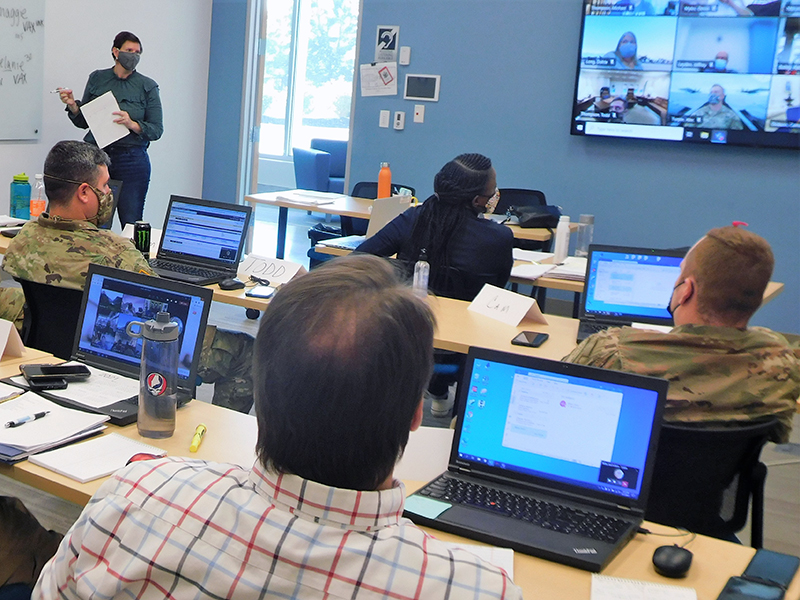MCD Receives $1.3 Million Grant to Expand Behavioral Health Services in Rural Maine
Oct. 18, 2021

MCD provides hybrid training to public health workforce in Augusta.
Medical Care Development’s public health division (MCDPH), headquartered in Augusta, Maine, received a three-year grant to expand behavioral health care services in rural Maine through education, training, and mentorship programs.
The grant will help bring new workers into the behavioral health workforce, support early career staff to develop new skills and become eligible for additional certifications, and offer clinical health providers opportunities to enhance their skill in treatment and intervention for behavioral health disorders, focusing on substance use disorder.
“You do not have to be a clinician in order to help your friends and neighbors with substance use disorder,” said Lisa Tuttle, a program manager at MCDPH. “Through structured training and mentoring, we can bring more people into the field of behavioral health, often in the rural communities where they already live. By offering learning collaboratives and Project ECHO format training to clinical providers and office staff, we can improve access and quality of care.”
MCDPH was one of three awardees that received the Rural Behavioral Health Workforce Coordinating Centers for Northern Border Region grant from the U.S. Department of Health and Human Services’ Federal Office of Rural Health Policy (FORHP), which resides in the Health Resources & Services Administration. Organizations that received grant funding are located in the northern border regions of New Hampshire, Vermont, and Maine.
The goals include building a network of partners to implement training, mentorship programs, and recruitment for behavioral health providers in the selected rural areas, as well as assessing the needs and opportunities in the rural areas to inform future activities, among others.
To accomplish this, MCDPH is partnering with an array of leading organizations, training, and subject matter experts who have received FORHP funds to address opiate use disorder and substance use disorder. These partners will engage with a broader group of stakeholders, and people who have experience with substance use disorder to increase connections to existing career opportunities in behavioral health and the role everyone has in helping foster recovery-ready communities.
“Maine has exceptional and dedicated behavioral health professionals, and MCD is excited to support the growth of this workforce, so that every person has access to behavioral health services in all Maine communities,” said Elizabeth Foley, co-director of MCDPH.